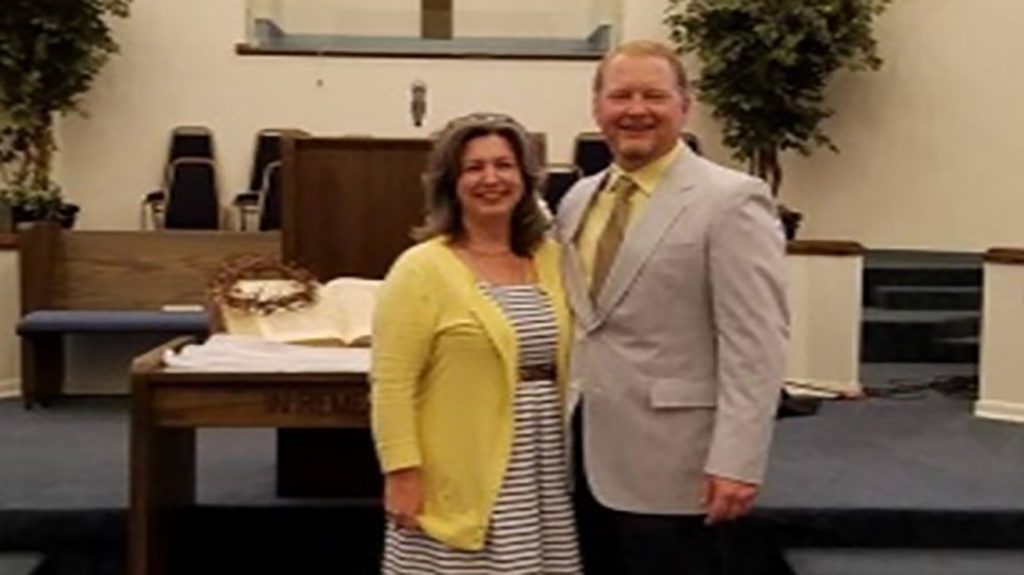Finding ways to minister to special needs children and adults within Alabama Baptist churches may seem like an ordinary task, but it is an extraordinary effort of education, inspiration and acceptance.
“Our task in ministry is to provide a place where they are loved and accepted rather than pushed away or rejected,” said Sherron Culpepper, consultant for the office of Sunday School with the Alabama Baptist State Board of Missions.
She made her comments while addressing a special needs conference in Shelby Baptist Association where special needs Sunday School teachers, ministers of education and ministers to children were attending.
Special needs can mean Down syndrome, autism, muscular dystrophy, spina bifida, cerebral palsy, attention deficit hyperactivity disorder or other developmental disabilities. Some children may have hearing or vision impairments. These are only a handful of hundreds of physical, emotional or mental problems a child or adult coming to Sunday School may have.
Depending on the severity of the need, individualized attention may help them have a meaningful experience at church.
Culpepper said the special needs person may be in a class where everyone has a special need of one kind or another or they may be “mainstreamed” in a regular class — the choice depends on each person’s specific condition and how their behavior is on a given Sunday morning.
But even in a mainstream class an adult Sunday School worker usually shadows the child to assist when necessary.
“The prevailing method in the church is to mainstream them,” she said.
Beyond the early years
But special needs don’t end when these children grow up.
“There is no cutoff as far as adults — children grow up and we need to provide for them. Right now we are focusing on children just because they are who we have here with special needs,” said Lucretia Mobbs, minister of education and adults, First Baptist Church, Helena, where the conference was held.
At First Baptist Church, Huntsville, where Culpepper leads special needs Sunday School, the ages of special needs adults ranges from 19 to 78, Culpepper noted.
Culpepper, a professional educator, said a distinction should be drawn between teaching special needs children and youth in public school and in the church.
“It’s very tempting when you visit a child’s school or home and learn a child’s Individualized Educational Plan (IEP) to recreate that at church,” she said. “At its best church is a place where everyone is loved and accepted,” she said.
“What we really want to do is communicate God’s love to that child. So your time and effort doesn’t need to be spent teaching ABCs and colors, unless that’s a means to an end for you in the focus of that day. Keep in mind that church is a different environment — we want them to learn, but it’s a place to know they are accepted and loved.”
Culpepper said special education ministry will broaden a person’s horizons and offer opportunities to communicate the love of God, even though it requires a different approach to delivering the message.
Whitesburg Baptist Church, Huntsville, begins its Sunday School with special needs children by exercising in the gym.
Then they move on to refreshments, according to Kathy McCown, special needs department director at Whitesburg.
Once the more traditional Sunday School classtime begins leaders employ marching to emphasize to children they are moving into another segment or facet of the day’s activities. Repetitiveness and singing the same songs week after week are important ways to help special needs children feel more comfortable, McCown said.
Interpersonal activity among children, especially those with autism, is not widely common, yet it does happen.
“You don’t normally see a lot of interaction among the children,” McCown said. “But one day one little boy tugged on another’s shirt, encouraging him to march — that was a big thing.”
According to JoAnn Collier, preschool ministry director at Whitesburg, they have had special needs Sunday School for four years and part of that time have conducted a special needs Vacation Bible School.
She said a key to effectiveness in this kind of ministry is having as much as a one-to-one teacher-student ratio. “There are so few churches that are willing to do this because it takes a lot of teachers to maintain the small teacher-to-student ratio required for this ministry to work,” Collier said.
Those who lead the children say the rewards of this ministry can be great.
“One little boy memorized a Scripture verse and said it to his dad — another little boy read aloud,” McCown said. “A little girl who cannot speak learned to sign ‘Jesus’ — all major things in the lives of these families,” McCown said.
Culpepper said, “It’s not your intellectual ability that helps you relate to God but its God’s Spirit talking to your spirit. I don’t think we can say that because a person is bright, gifted or normal means that they are able to relate to God any more than a person who may not communicate well or who may not to us be able to relate in a way that we are familiar with,” she said. “God can communicate with people in ways we don’t fully understand.”





Share with others: